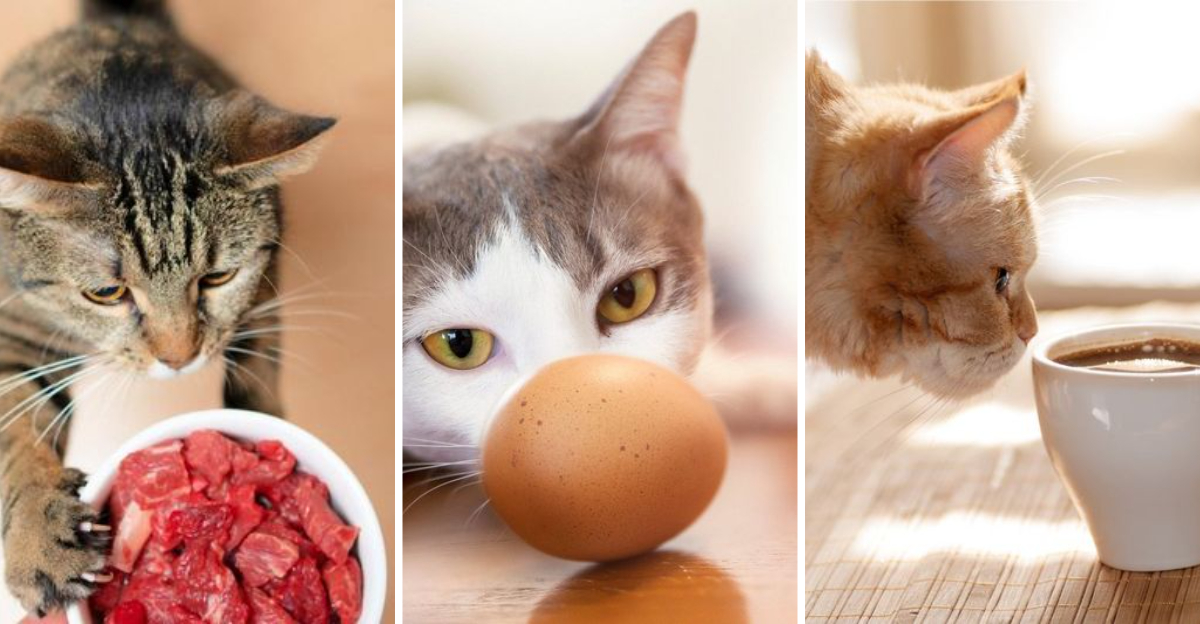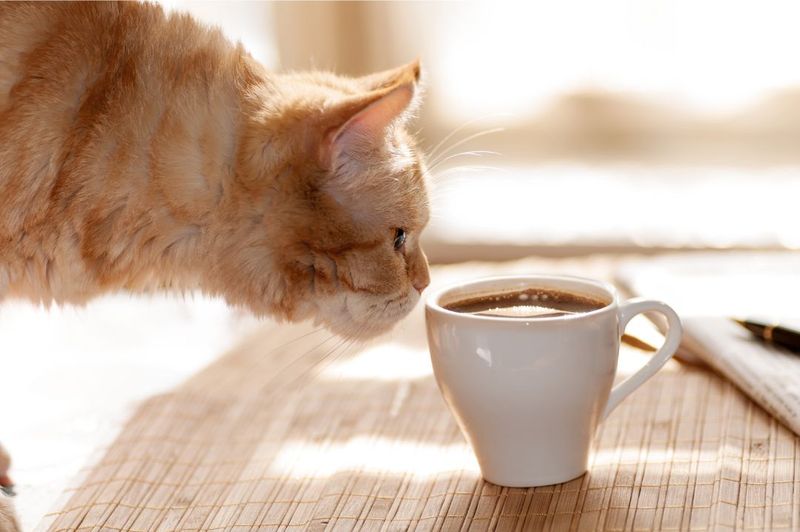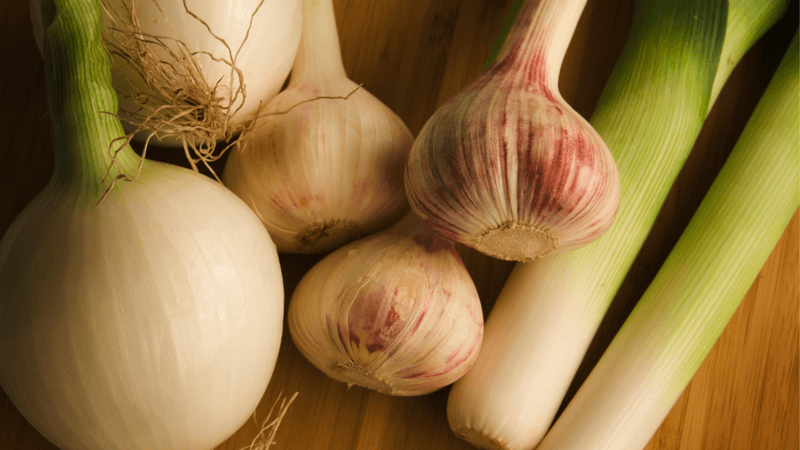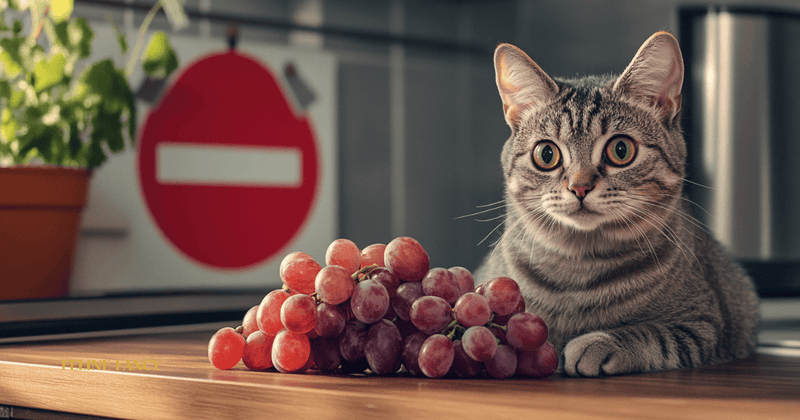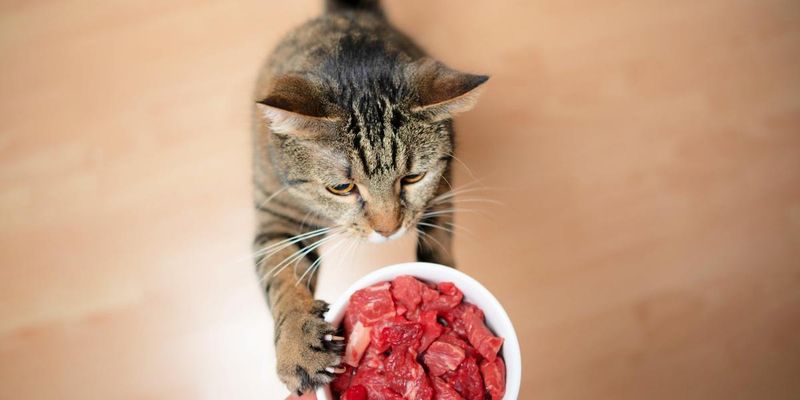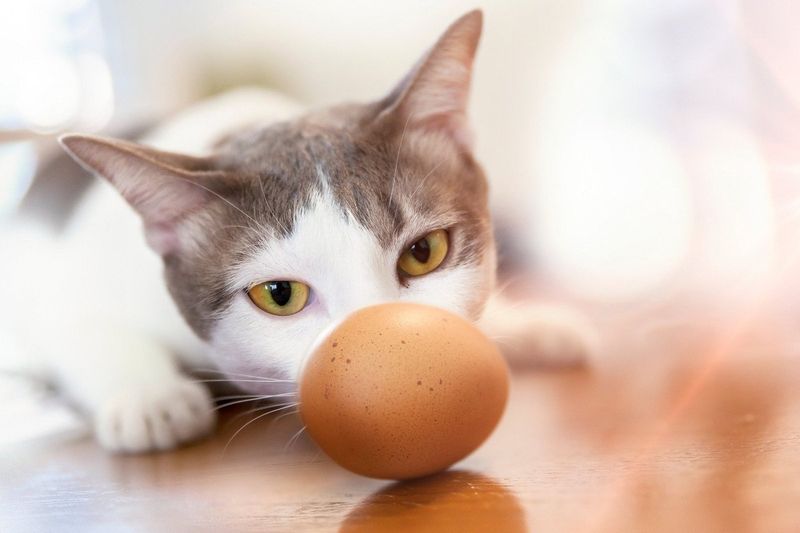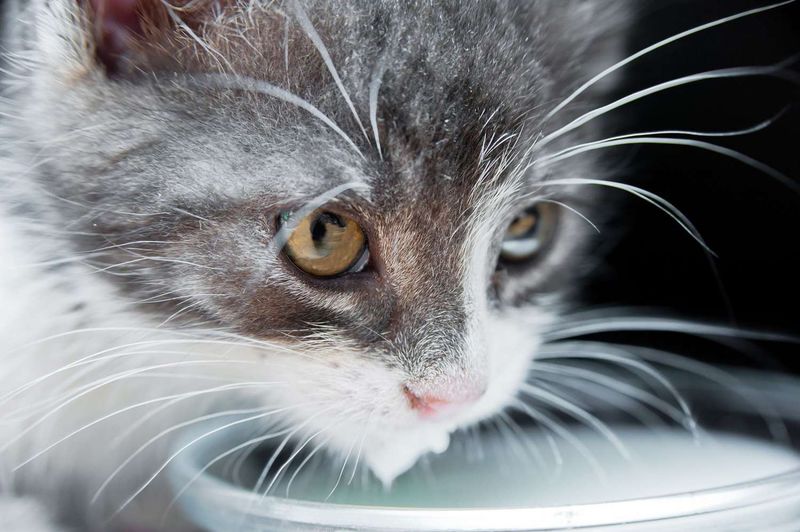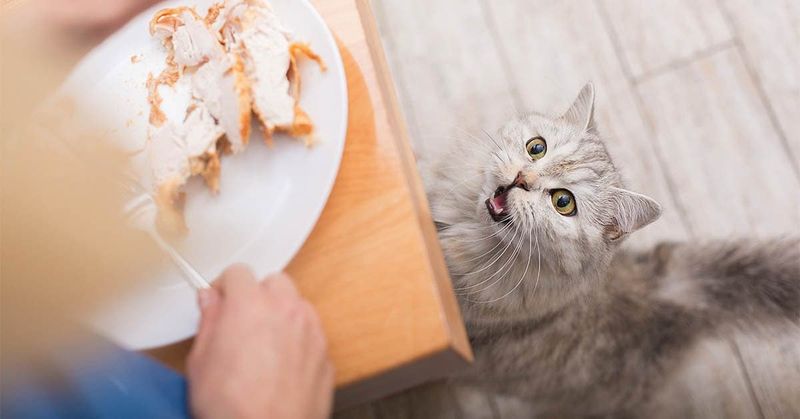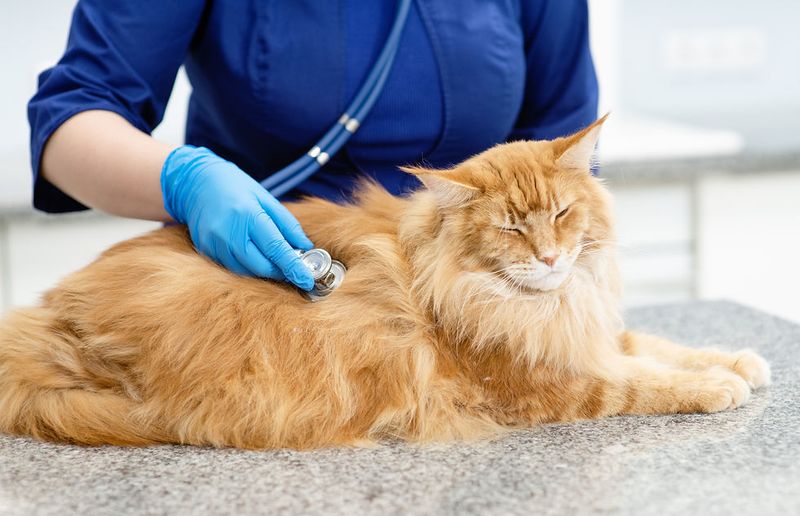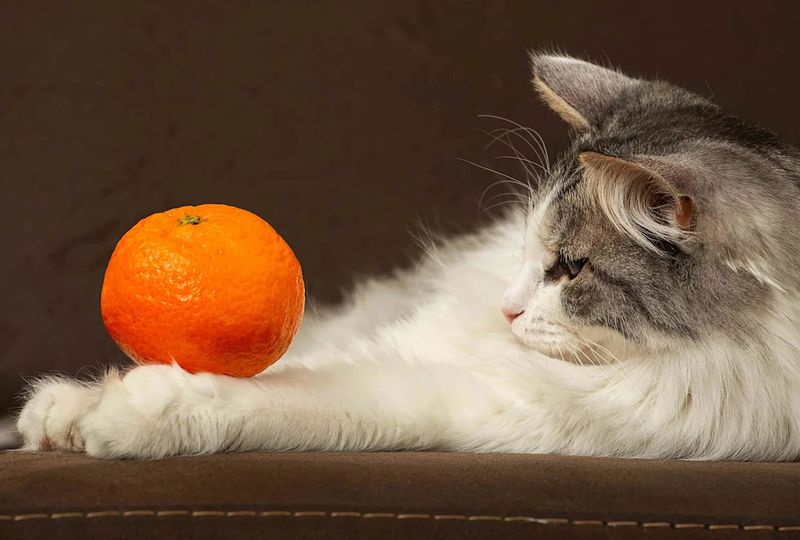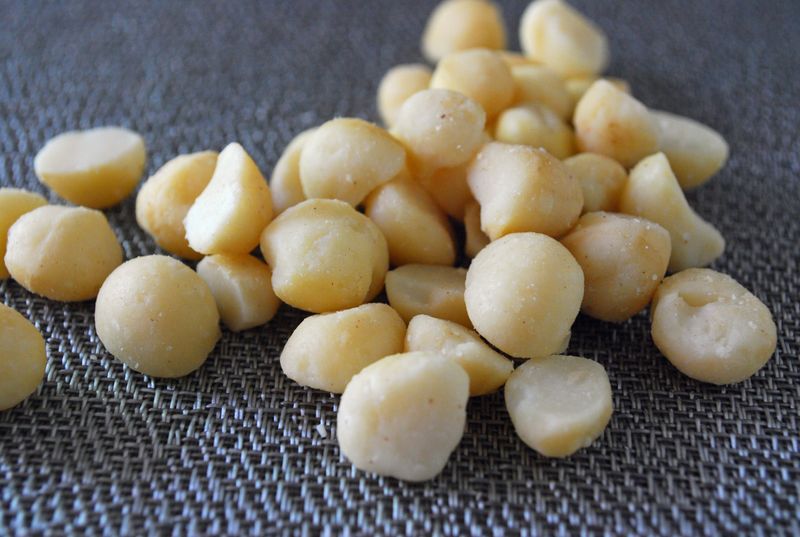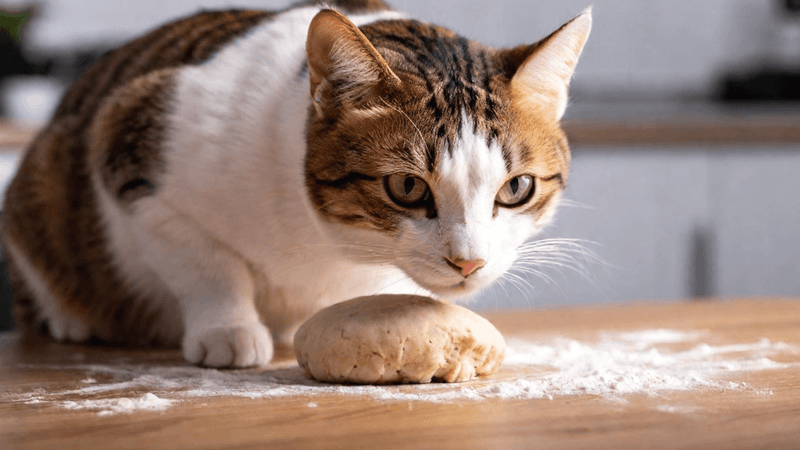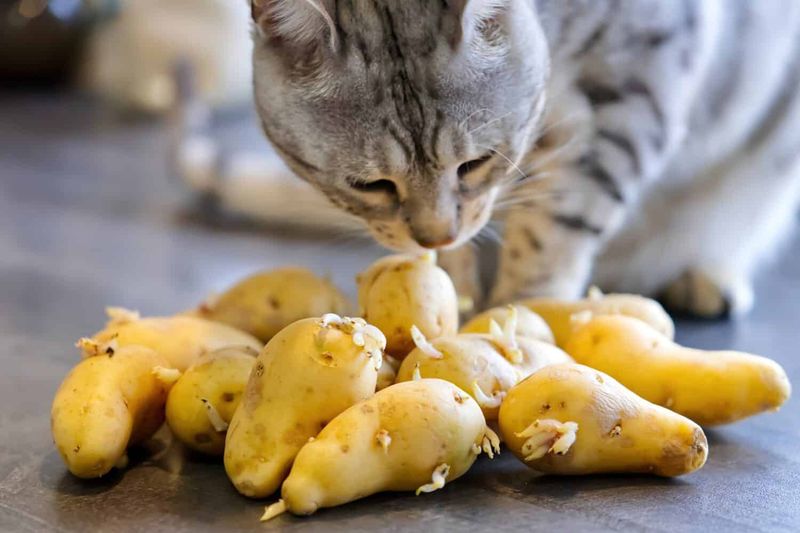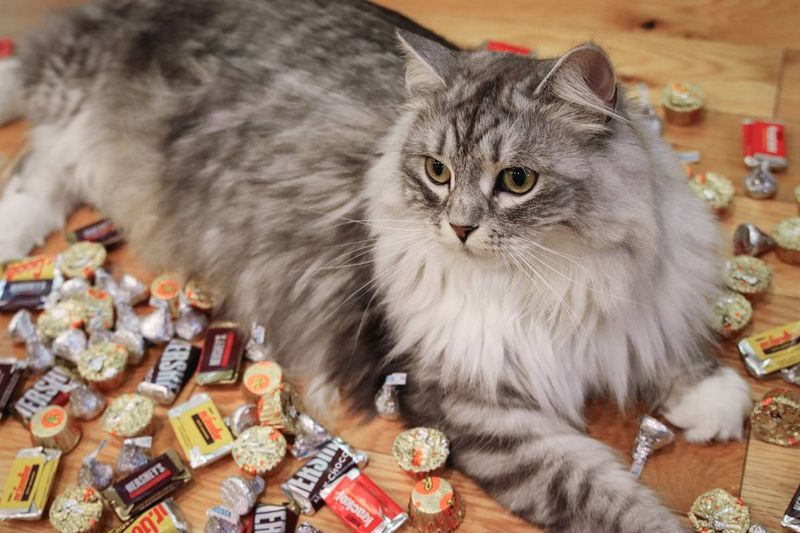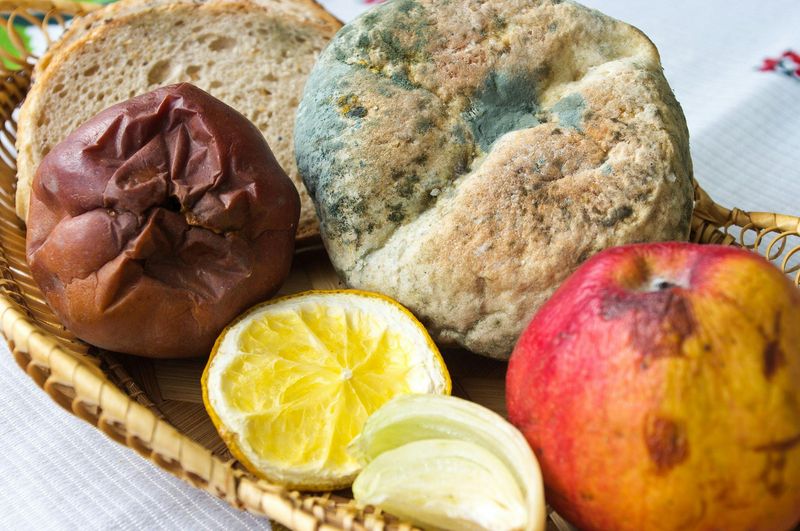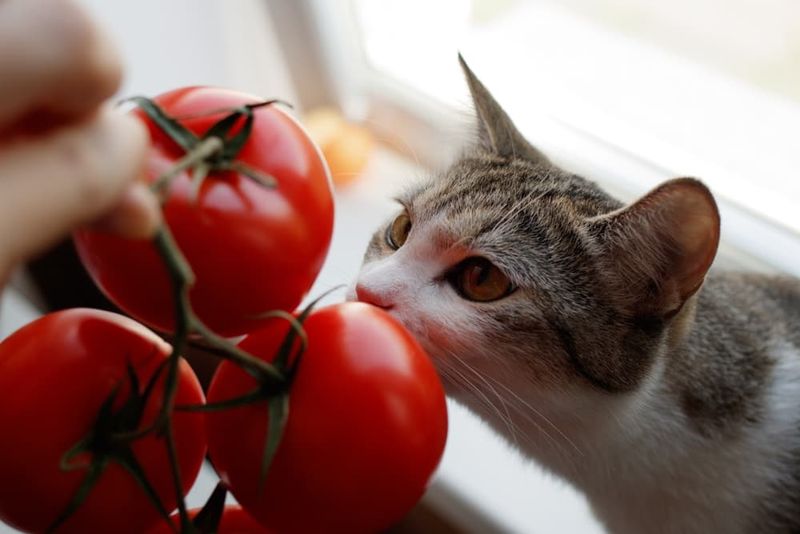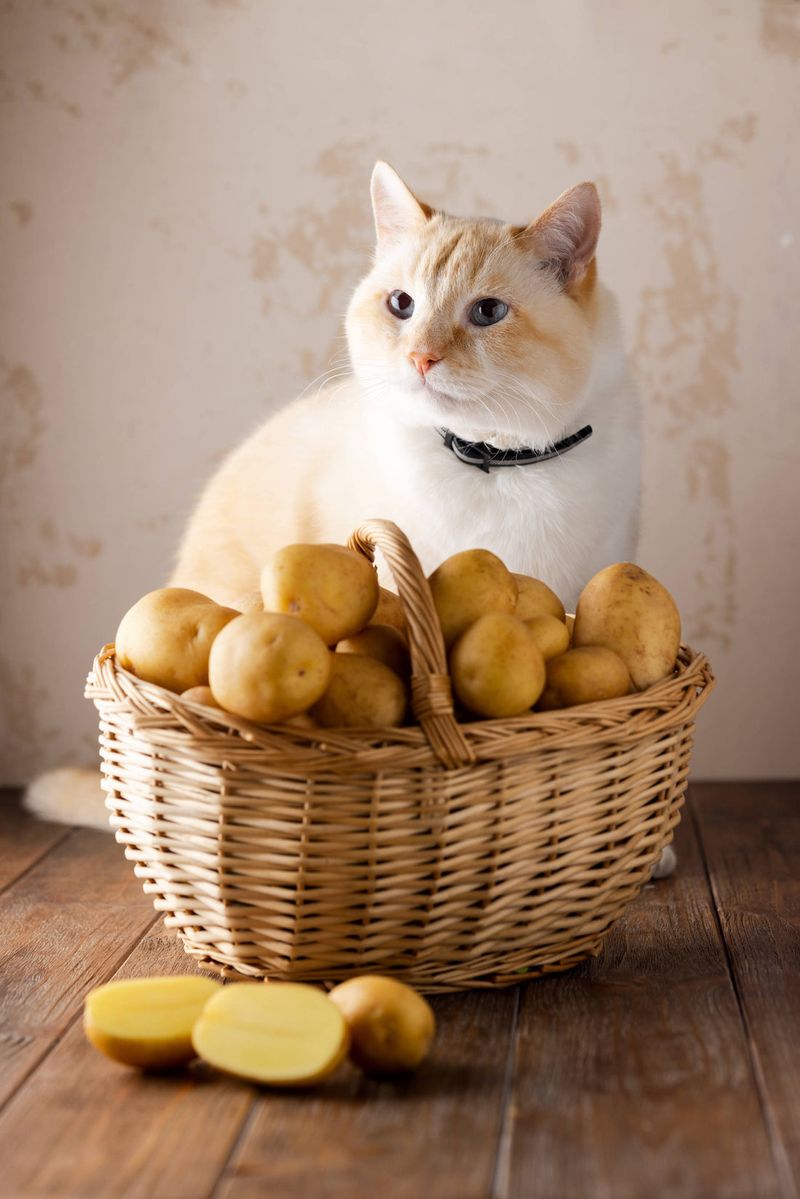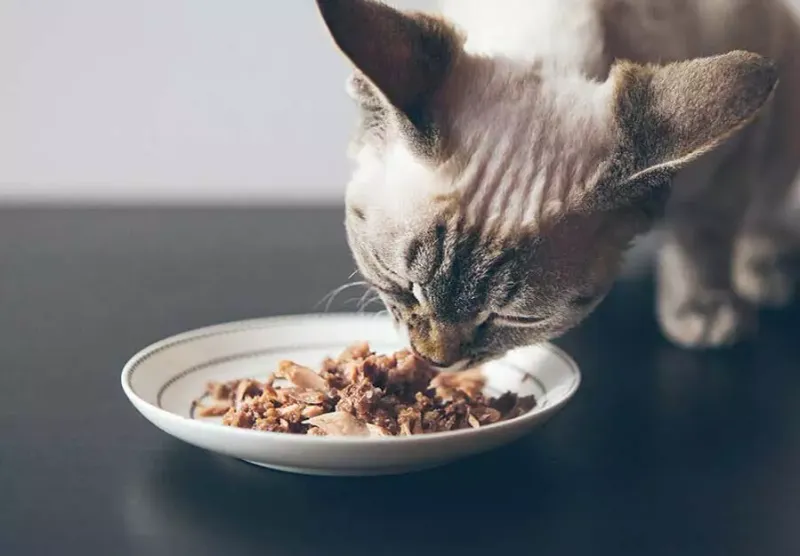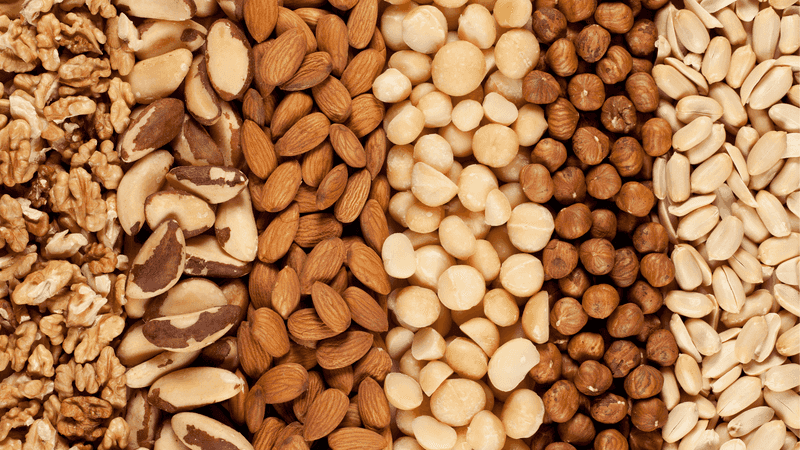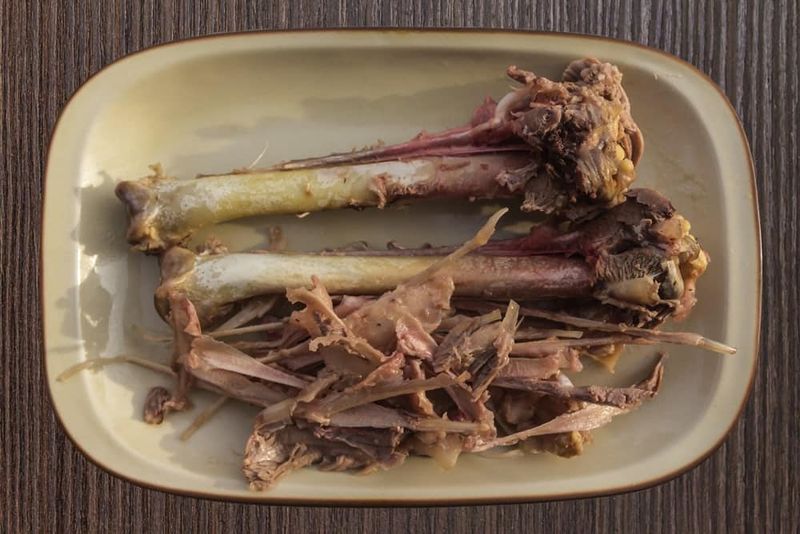📖 Table of Content:
- 1. Chocolate
- 2. Caffeine (Coffee, Tea, Energy Drinks)
- 3. Onions, Garlic, and Chives
- 4. Grapes and Raisins
- 5. Raw Meat and Fish
- 6. Raw Eggs
- 7. Dairy Products
- 8. Fat Trimmings and Bones
- 9. Salt
- 10. Xylitol
- 11. Citrus Fruits
- 12. Avocados
- 13. Macadamia Nuts
- 14. Yeast Dough
- 15. Raw Potatoes and Tomatoes
- 16. Artificial Sweeteners (e.g., Xylitol)
- 17. Moldy Foods
- 18. Unripe Tomatoes
- 19. Uncooked Potatoes
- 20. Canned Tuna
- 21. Liver
- 22. Nuts (e.g., Almonds, Walnuts)
- 23. Cooked Bones
Sharing food with your cat might seem harmless—but some human favorites can be dangerous or even toxic to felines. In this essential guide, we’ve compiled a list of 23 common foods that cat owners should never feed their pets. From everyday ingredients like onions and chocolate to less obvious culprits like grapes and caffeine, each item is explained with the risks it poses and why it doesn’t belong in your cat’s diet.
Whether you’re a first-time cat parent or a seasoned pet owner, this list will help you keep your furry friend safe, healthy, and far away from the wrong kind of treats. We’ll also include tips on what to do if your cat accidentally consumes something harmful, along with safe alternatives your cat can enjoy.
1. Chocolate
Most are aware of chocolate’s danger to dogs, but it poses a grave threat to cats too. The components theobromine and caffeine can induce symptoms ranging from vomiting to seizures. Dark chocolate, in particular, holds a higher concentration of these harmful substances, making it especially perilous. Cats are curious creatures, and a sweet treat may be tempting, but the consequences are dire. Always store chocolate securely, away from the reach of these unsuspecting pets. A moment of vigilance can save a lifetime of regret.
2. Caffeine (Coffee, Tea, Energy Drinks)
The invigorating aroma of caffeine may draw you in, but it spells trouble for your feline friend. Be it coffee, tea, or energy drinks, cats’ systems aren’t equipped to handle caffeine. Restlessness, rapid breathing, and even heart palpitations can occur. Imagine your playful kitten suddenly becoming unusually hyperactive or lethargic. Avoid having these beverages within their reach to spare them from unnecessary distress. Your morning ritual is a part of your life, not theirs, so keep it that way.
3. Onions, Garlic, and Chives
Onions, garlic, and chives might add flavor to your meals but can be disastrous for cats. These ingredients, whether raw, cooked, or powdered, can damage a cat’s red blood cells, leading to anemia. The risk doesn’t diminish with cooking; the toxins remain potent. An innocent bite from a discarded onion skin or a taste of garlic sauce could result in severe health issues. It’s vital to ensure these foods are kept away from curious paws. A simple precaution can prevent a life-threatening situation.
4. Grapes and Raisins
A juicy grape or chewy raisin may seem benign, but they harbor hidden dangers for cats. These fruits can lead to sudden kidney failure, a terrifying and potentially fatal condition. Even a small amount can trigger adverse reactions. Consider the unsuspecting nature of your pet, unaware of the peril hidden within these innocent-looking treats. Protecting them involves keeping such fruits out of their diet and reach. When it comes to feline safety, vigilance with grapes and raisins is a must.
5. Raw Meat and Fish
The idea of feeding raw meat and fish might appeal to some, echoing a wild diet, yet it poses significant risks. Harmful bacteria like Salmonella and E. coli can lurk within, leading to severe gastrointestinal issues. Raw fish also contains enzymes that destroy thiamine, a vital B vitamin, risking your cat’s health. Imagine the disappointment of thinking you’re offering a natural diet, only to cause harm. Ensure any meat or fish is well-cooked before serving it to your feline friend.
6. Raw Eggs
The allure of raw eggs as a protein source can be misleading for cat owners. Raw eggs pose a dual threat: the risk of Salmonella infection and the presence of avidin. Avidin inhibits biotin absorption, leading to skin and coat problems. Picture your cat’s lustrous fur becoming dull and lackluster. By opting for cooked eggs, you not only eliminate these risks but also provide a nutritious treat. It’s a simple change with significant benefits, ensuring your cat’s health remains uncompromised.
7. Dairy Products
The stereotype of cats loving milk is a widespread myth that overlooks a common reality: lactose intolerance. Many cats lack the enzyme needed to digest lactose, leading to symptoms like vomiting and diarrhea. Imagine offering a bowl of milk, only to see your pet suffer. While dairy might seem like a comforting treat, it’s often more trouble than it’s worth. Consider offering lactose-free alternatives if you wish to indulge your feline friend. Their digestive well-being is worth the extra effort.
8. Fat Trimmings and Bones
Fat trimmings and bones might appear as harmless leftovers, but for cats, they pose significant risks. Consuming fat trimmings can lead to pancreatitis, a painful and potentially deadly condition. Bones, on the other hand, can splinter, causing choking or internal injuries. Picture your pet facing such dangers from seemingly innocuous scraps. It’s essential to discard these remnants properly, keeping them out of reach. Your mindful actions can prevent unnecessary suffering and ensure your cat’s safety.
9. Salt
Salt, a common seasoning, can be perilous for cats when consumed in excess. High salt intake might lead to symptoms ranging from vomiting and diarrhea to tremors and seizures. The danger lies in seemingly innocent sources like salted snacks or certain human foods. Consider the distress of watching your pet suffer from a preventable condition. By maintaining a salt-free environment in your cat’s diet, you take a proactive step in safeguarding their health. It’s a simple yet vital precaution.
10. Xylitol
Xylitol, a sweetener in sugar-free products, is known for its detrimental effects on dogs, but cats are not immune. Though the effects on felines are less documented, the risk remains. Xylitol can cause low blood sugar and liver failure. Imagine the hidden danger lurking in a seemingly harmless piece of gum. Keeping sugar-free products away from your cat is a wise choice, ensuring their safety from this insidious threat. It’s a small effort for the peace of mind it provides.
11. Citrus Fruits
The tangy zest of citrus fruits might be refreshing to us but is potentially harmful to cats. Containing citric acid and essential oils, these fruits can disrupt a cat’s gastrointestinal system. Symptoms may include discomfort and even central nervous system depression. Imagine your cat’s lively demeanor replaced by listlessness. Ensuring citrus fruits are kept away from their curious paws is crucial. A vigilant approach to their diet can spare them from unnecessary distress and maintain their joyful spirit.
12. Avocados
Avocados, celebrated for their nutritional benefits in human diets, can be treacherous for cats. The compound persin found in avocados can lead to serious conditions such as vomiting, diarrhea, and respiratory distress. Picture your cat’s health compromised by an unsuspecting nibble. Preventing access to avocados is essential to avoid these risks. While they might be a superfood for you, they’re a super threat to your feline companion. Properly managing your kitchen’s contents can make all the difference.
13. Macadamia Nuts
Macadamia nuts, a delightful snack for humans, can cause significant distress for cats. Symptoms like lethargy, vomiting, and tremors can occur if ingested. Imagine the playful energy of your cat diminished by such an avoidable hazard. The exact toxin responsible remains a mystery, but the potential harm is undeniable. By keeping these nuts well out of reach, you protect your pet from unnecessary suffering. Your awareness and action play a crucial part in safeguarding their health and happiness.
14. Yeast Dough
Yeast dough, with its potential to rise, poses a unique danger to cats. If ingested, it can expand in the stomach, causing painful bloating and even life-threatening twisting. Imagine the potential for a harmless-looking dough to become a serious health threat. Ensuring that dough is kept away from curious paws is essential. Your vigilance in the kitchen can prevent such a dangerous situation, keeping your cat safe and happy. It’s the small precautions that make the biggest difference.
15. Raw Potatoes and Tomatoes
Raw potatoes and tomatoes might seem innocent, yet they contain solanine, a toxin that can cause severe gastrointestinal upset in cats. Picture your cat’s discomfort from something as simple as a raw slice. Cooking usually diminishes the toxin, but raw consumption should be strictly avoided. By keeping these items out of reach and ensuring they’re cooked before exposure, you safeguard your pet’s digestive health. It’s a simple measure that prevents unnecessary distress and maintains their well-being.
16. Artificial Sweeteners (e.g., Xylitol)
Artificial sweeteners, especially xylitol, are known for their dangerous effects on pets. While extensively documented in dogs, the risk to cats remains significant. These substances can cause low blood sugar and potential liver failure. Imagine the hidden threat in sweetened products that seem innocuous. By ensuring these products are stored away from your cat, you protect them from harm. Awareness and caution in handling these items are vital in safeguarding your pet’s health.
17. Moldy Foods
Moldy foods, often discarded without a second thought, can be a silent threat to cats. Containing mycotoxins, they can induce symptoms such as vomiting, diarrhea, and even neurological issues. Consider the unseen danger lurking in an overlooked piece of bread. By ensuring proper disposal of moldy items, you prevent your cat from encountering these risks. It’s a simple but effective step in maintaining their health and well-being. Your vigilance makes all the difference.
18. Unripe Tomatoes
Unripe tomatoes, while a staple in many kitchens, contain solanine, a harmful compound for cats. This toxin can lead to gastrointestinal upset and necessitates careful handling. Picture the curiosity of a cat encountering a garden or kitchen full of unripe tomatoes. Ensuring these items are kept out of reach and ripe before consumption is vital. Your attention to such details ensures their safety and happiness, preventing potential harm from these everyday foods.
19. Uncooked Potatoes
Uncooked potatoes pose a threat due to solanine, a toxin that can cause discomfort and health issues in cats. While cooking neutralizes this compound, raw consumption is dangerous. Imagine the unseen danger in your kitchen, a simple potato turning into a health risk. Keeping these items out of reach and ensuring they are cooked before any exposure is crucial. It’s a straightforward precaution that ensures your pet’s well-being and comfort, protecting them from unnecessary harm.
20. Canned Tuna
Canned tuna, while a beloved treat for many, can lead to more harm than good when fed to cats in large amounts. The risk of mercury poisoning and nutritional imbalances are genuine concerns. Imagine the unintended consequences of offering too much of this treat. Moderation is key, ensuring that it remains a rare delight rather than a dietary staple. By controlling their intake, you maintain their health and happiness. It’s a small effort for your cat’s long-term well-being.
21. Liver
Liver, a nutrient-rich organ meat, can become problematic if overconsumed by cats. The danger lies in vitamin A toxicity, leading to bone deformities and other health issues. Imagine the hidden risk in what seems like a nutritious treat. By limiting liver intake, you prevent these adverse effects and promote a balanced diet. Your care in managing their diet ensures their overall well-being and longevity, safeguarding them from potential harm while still allowing occasional enjoyment.
22. Nuts (e.g., Almonds, Walnuts)
Nuts like almonds and walnuts, delightful for human snacks, can pose digestive challenges for cats. Their high-fat content can lead to pancreatitis or general digestive upset. Imagine the innocent curiosity of a cat leading to stomach distress. By keeping these items out of reach, you ensure their digestive health remains intact. It’s a simple yet crucial action in maintaining their comfort and happiness, preventing unnecessary discomfort from these seemingly benign snacks.
23. Cooked Bones
Cooked bones, often seen as harmless remnants, can be perilous for cats. They have a tendency to splinter, risking choking or causing internal injuries. Imagine the potential danger in a leftover bone from your dinner. By ensuring that these bones are properly disposed of, you protect your pet from these risks. It’s a mindful practice that guarantees their safety and well-being, preventing any chance of harm from such common leftovers.
